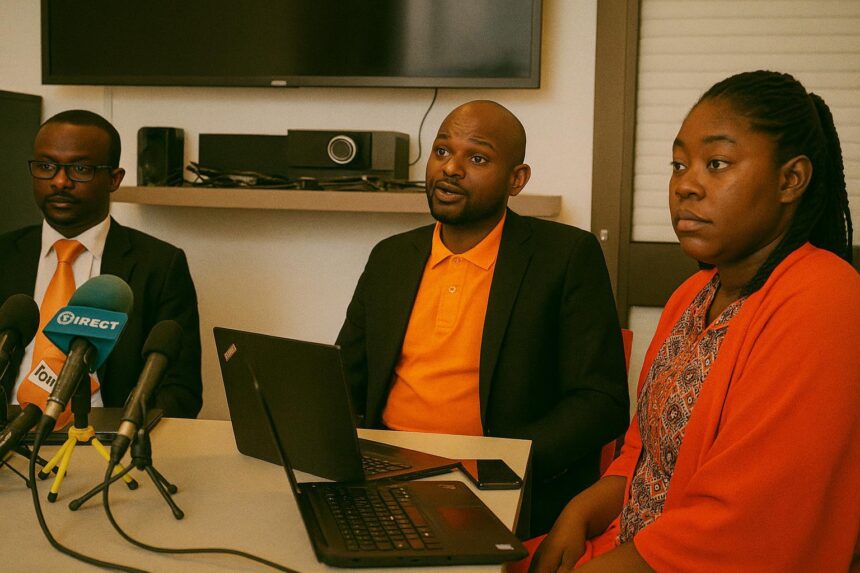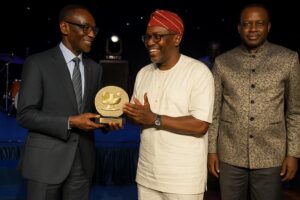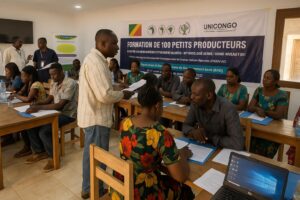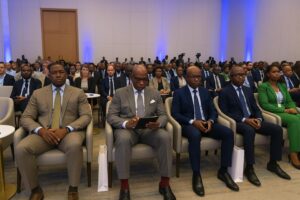A Port City Spotlights Digital Procurement
On 16 July, within sight of Pointe-Noire’s cranes and breakwaters, Sosep Groupe SA unveiled Joukwa, a cloud-based marketplace ambitiously framed as a one-stop shop for cross-border B2B sourcing. The demonstration, led by operations manager Abiguel Massouka and communications adviser Ame César Sehossolo, attracted a discreet but influential audience of import-reliant entrepreneurs, public-sector buyers and foreign observers who collectively handle a sizeable share of Congo-Brazzaville’s annual merchandise bill. Their curiosity was warranted: the project arrives at a moment when the Congolese government emphasises digital solutions to reduce transaction frictions and diversify an economy still tethered to hydrocarbons.
- A Port City Spotlights Digital Procurement
- Navigating AfCFTA Currents with a Single Click
- A Toolbox for Managing International Complexity
- Strategic Fit with Congo’s Diversification Agenda
- Anchoring Trust in a Fintech Regulatory Tide
- Regional Spill-Overs from a Binational Footprint
- From Pilot Phase to Pan-African Ambition
- Outlook: A Calculated Bet on Digital Sovereignty
Navigating AfCFTA Currents with a Single Click
Joukwa’s business logic is inseparable from the African Continental Free Trade Area, whose tariff-lowering regime formally entered its operational phase in 2021. With the AfCFTA expected to create a market of 1.3 billion consumers (UNECA), Congolese firms increasingly compete and cooperate across borders. Yet, as recent UNCTAD data underline, non-tariff barriers—from opaque customs forms to fragmented suppliers—still inflate landed costs by as much as 30 %. By digitising quotation requests, freight booking and payment reconciliation, Joukwa aspires to compress that premium, helping local companies convert AfCFTA’s legal architecture into tangible procurement gains.
A Toolbox for Managing International Complexity
Massouka summarised the platform’s value proposition in decidedly operational terms: real-time shipment tracking, automated conformity checks, escrow-style vendor payments and data dashboards calibrated to CFO needs. The underlying architecture relies on an API layer connected to freight forwarders and banking partners, a feature the promoters argue will shorten average delivery lead-times by up to 20 %. “We negotiate tariffs, consolidate cargo and secure every node until the parcel reaches the customer’s gate,” Sehossolo explained, insisting that a simplified front end conceals a rigorous back-office protocol tested during a year-long beta with clients in construction and telecoms.
Strategic Fit with Congo’s Diversification Agenda
Brazzaville’s latest National Development Plan lists logistics modernisation among its priority axes, and the Presidency has repeatedly called for greater private-sector participation in non-oil value chains. In this context Joukwa’s launch is more than a corporate milestone; it dovetails with state efforts to reposition Pointe-Noire not merely as an export funnel for crude, but as a regional distribution node for industrial inputs. The platform’s promise of transparent pricing and consolidated shipments could lower entry barriers for small and medium-sized enterprises—an objective echoed in recent statements by the Ministry of Trade.
Anchoring Trust in a Fintech Regulatory Tide
Digital marketplaces succeed or fail on their capacity to cultivate trust among counterparties who may never meet face to face. Joukwa’s promoters emphasise compliance with Banque des États de l’Afrique Centrale rules on cross-border payments and the region’s emerging data-protection framework. They have partnered with an investment-grade insurer to underwrite cargo risks and adopted ISO-aligned cybersecurity protocols. According to a 2023 Afreximbank survey, 62 % of African traders cite payment security as their primary concern; Joukwa’s escrow mechanism is an answer to that anxiety, albeit one that will demand constant calibration as transaction volumes scale.
Regional Spill-Overs from a Binational Footprint
Sosep Groupe maintains operational hubs in both Congo-Brazzaville and the neighbouring Democratic Republic of Congo, allowing Joukwa to tap the Lualaba-Pointe-Noire corridor and the Kasumbalesa gateway to Zambia. This binational presence is strategically relevant: World Bank figures show that intra-African freight can cost twice the global average per tonne-kilometre, a penalty compounded by empty backhauls. By aggregating orders across borders, Joukwa hopes to improve container utilisation and negotiate preferential rates with carriers—an approach that may entice logistics partners lobbying for steadier cargo flows.
From Pilot Phase to Pan-African Ambition
Industry analysts caution that platform economics reward early scale, yet they also note a scarcity of well-capitalised contenders focused on francophone Central Africa. Joukwa’s next milestones include integrating Central Bank digital payment rails and expanding its supplier catalogue beyond the current focus sectors—information technology, medical equipment, oil-field services and civil engineering. At a time when the WTO projects African merchandise imports to grow by 7 % annually through 2026, the addressable market is substantial, provided onboarding costs remain modest.
Outlook: A Calculated Bet on Digital Sovereignty
The Pointe-Noire roll-out illustrates how indigenous tech firms can complement public policy aims without displacing the state’s coordinating role. If Joukwa succeeds in reducing procurement friction while anchoring data and value creation on Congolese soil, it will strengthen the argument that digital sovereignty and economic diversification are mutually reinforcing. Diplomatic observers note that such initiatives also enhance Congo-Brazzaville’s soft-power narrative as a pragmatic reformer within the Economic Community of Central African States. For now, the platform’s dashboards are lighting up with their first live orders—a modest signal, perhaps, yet one that suggests the region’s trade flows may increasingly run through servers as well as seaports.





















